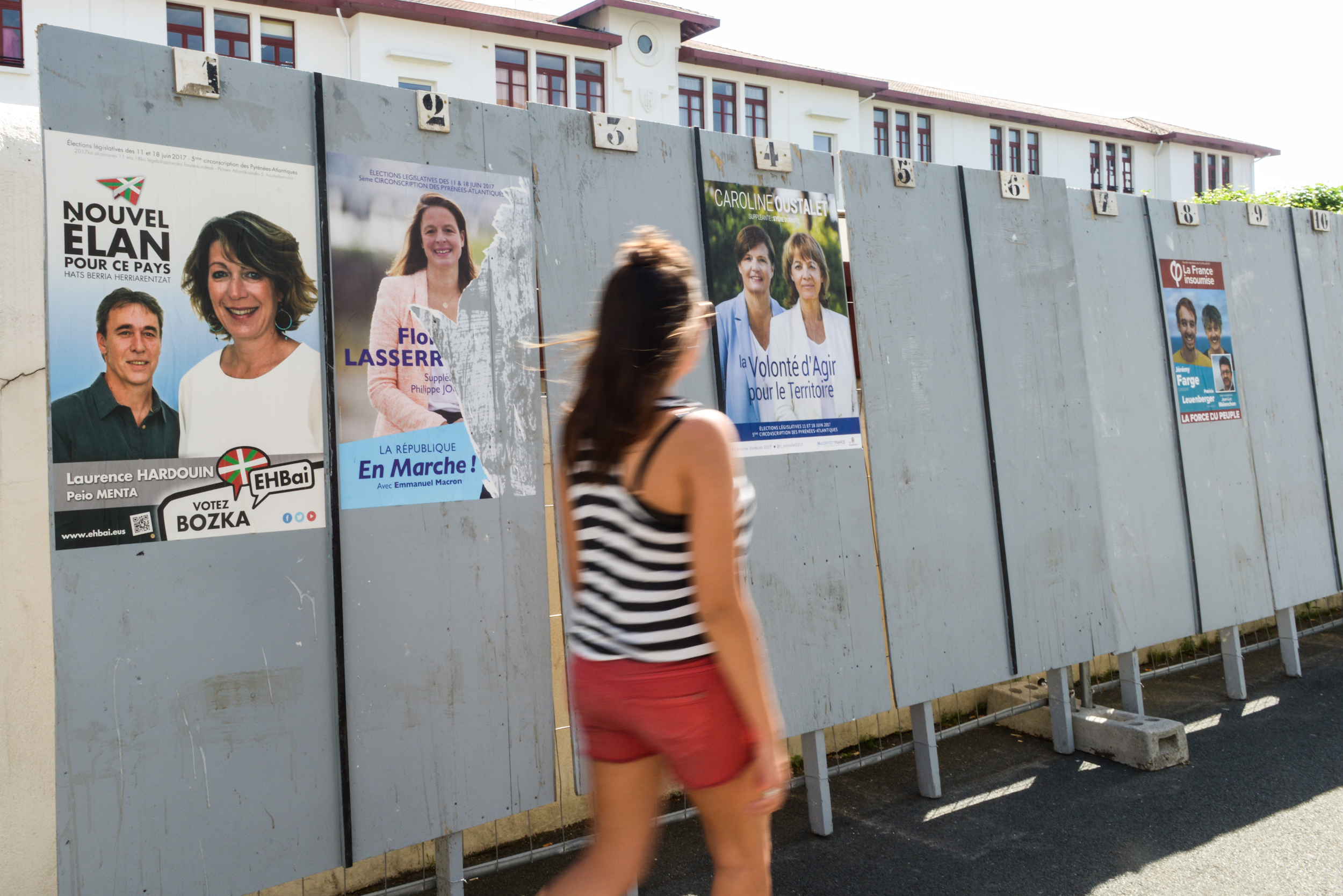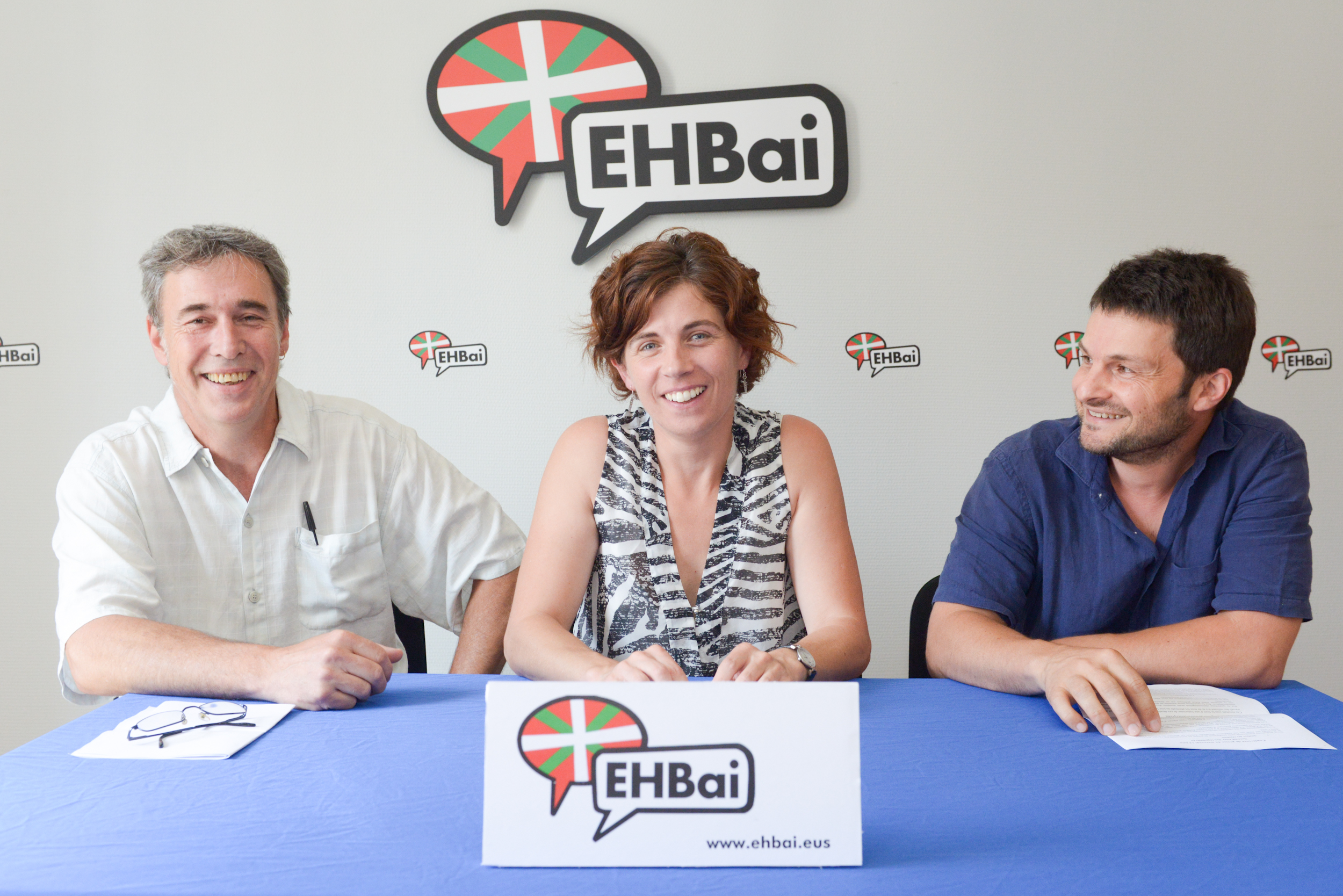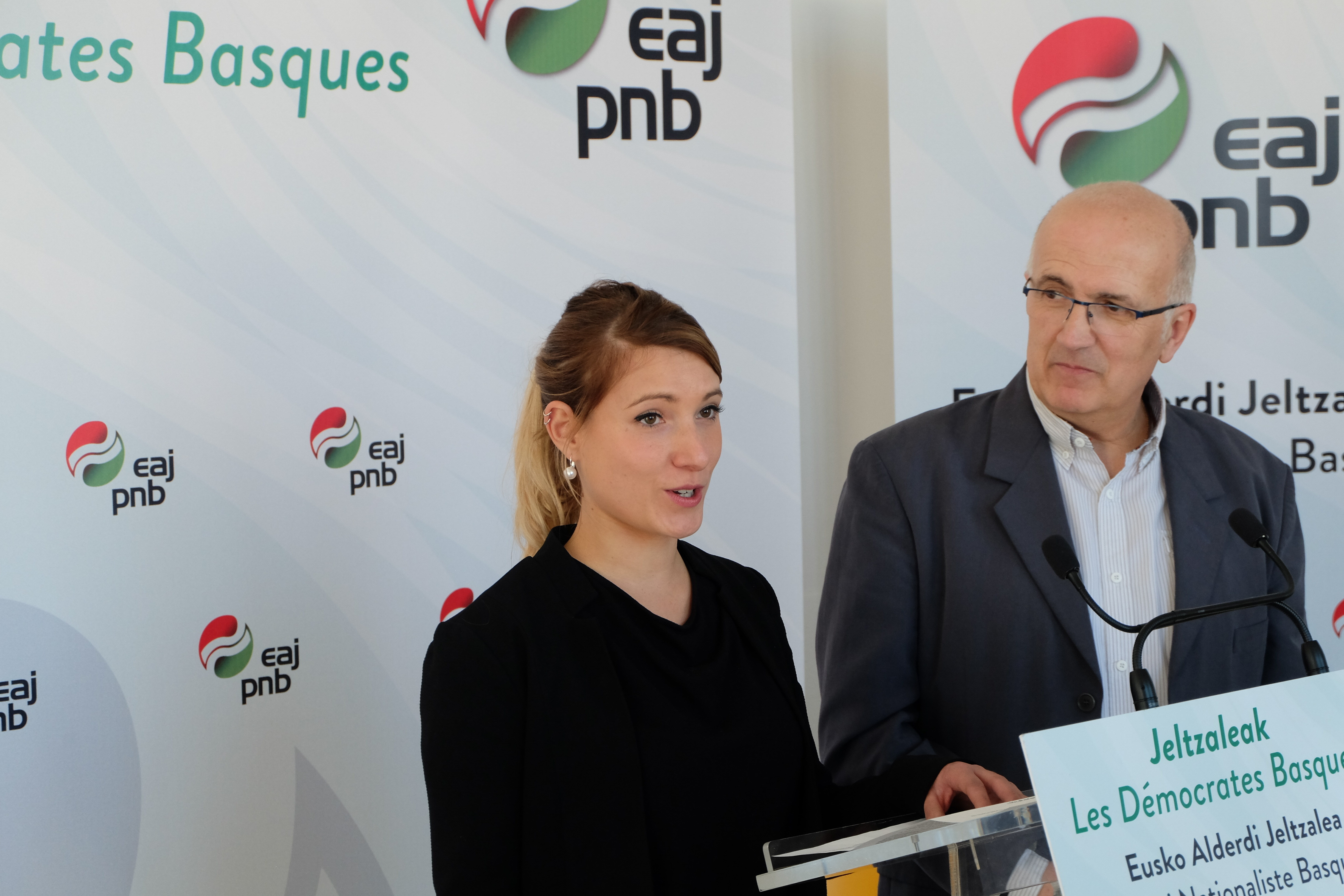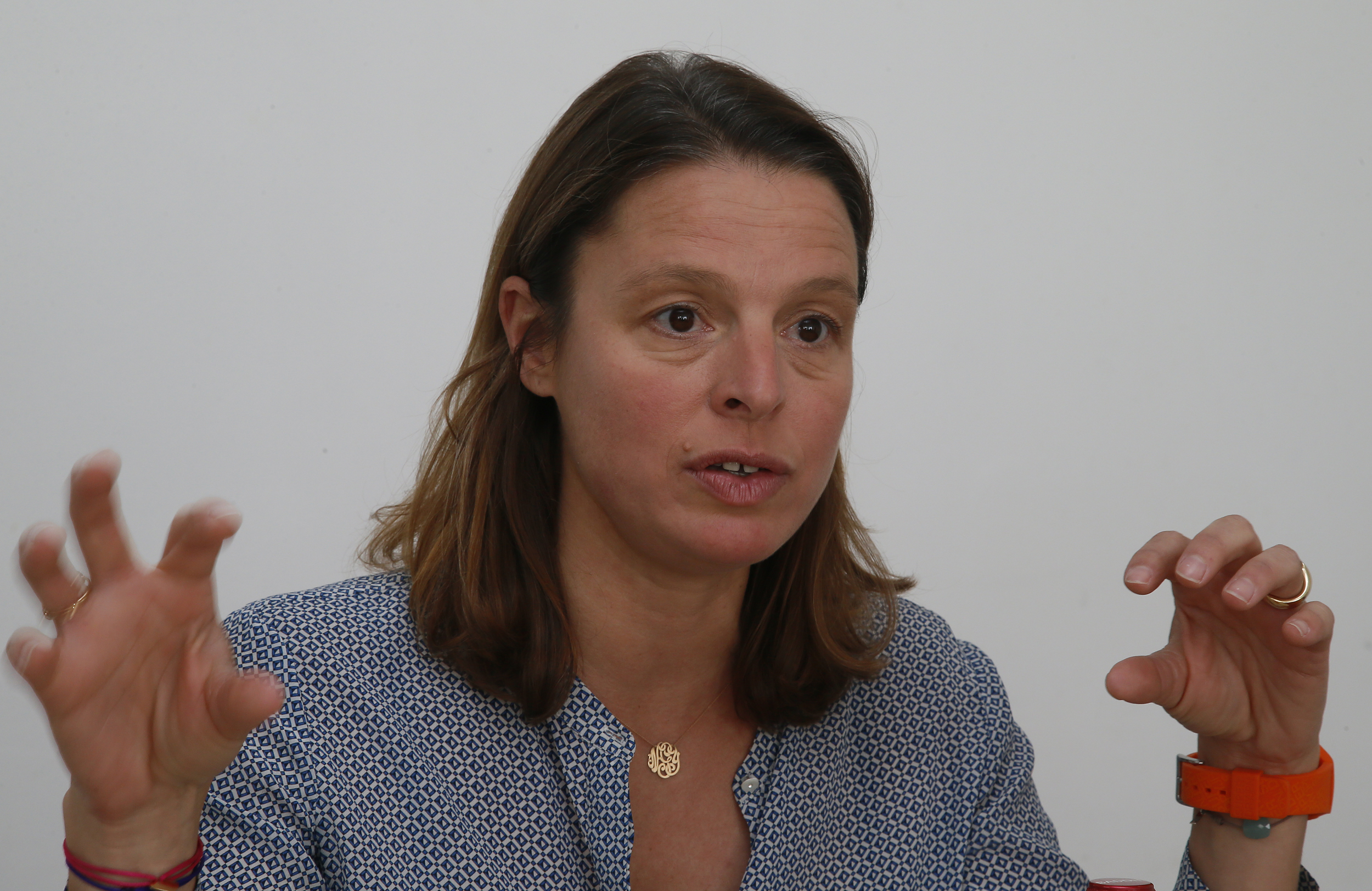A year ago he did not exist. He was just an ex-Minister. He didn’t have a political movement behind him either. Today he is the President of France and an emerging figure in European policy. In May he won the Élysée Palace, headquarters of the French Presidency. On June 18, he won the Bourbon Palace, which houses the National Assembly. He has a large parliamentary majority that gives him a free hand for tackling reforms. However, the young leader, Emmanuel Macron, would do well to remember that France is now a divided country, with multiple outlooks along with quite a few wounds, but above all, a society that needs to be heard. The three centrally aligned representatives elected in the Basque Country have the job of echoing claims in favor of the language, institutionalization, and the peace process of the Basque Country in Paris.
Originating from the Picardie Region (North), which brings together all the ingredients of the identity crisis and the social fracture that France is facing, Emmanuel Macron has managed to fit the pieces of the puzzle together.
- Lasserre-David, Bru and Lasselle will be the members of the Basque electoral districts in Paris. Kazeta.eus
- Lasserre-David, Bru and Lasselle will be the members of the Basque electoral districts in Paris. Kazeta.eus
- Lasserre-David, Bru and Lasselle will be the members of the Basque electoral districts in Paris. Kazeta.eus
Macron’s victory is one built from the threatened heart of the system: France, very present in military operations in the Middle East, is a privileged target for the attacks of the Islamic State and, in economic terms, it suffers from the effects of globalization, with the recurrent displacement of its businesses to other countries.
His high-speed ascent demonstrates, with its whole range of nuances and contradictions, both the fatigue and the deep aspiration for change in the heartbeat of French society.
Macron has grabbed an unseen power that overreaches the large number of seats that his Government will have in the National Assembly (around 350 of about 577).
La République en Marche party (LREM) took the largest piece of the pie, followed, with their tongues hanging out, by two parties, the old left-right model: Les Républicains, with around 120 seats, and the battered Socialist Party (PS), which produced the worst results in its history, with some 30 parliamentarians.
The far-right National Front party (FN) is made up of eight seats, but it is very far off target (Keep in mind that their candidate and now elected parliamentarian, Marine Le Pen, reached the second round of the presidential elections) and on the left flank France Insoumise is emerging (with around twenty members of Parliament) with a long-time leader, the ex-socialist Jean-Luc Mélenchon, who, after a complete political “face lift”, has risen like a phoenix, on the ashes of the space where the powerful French Communist Party once occupied.

Both the dull electoral campaign and low participation show a growing disinterest of citizens. Kazeta.eus
Widespread Abstention and Blank Voting
Unusually high abstention (about 57% overall and 54% in the Northern Basque Country), which shows a social disaffection towards a representative model, and the significant increase in blank and null votes, that show the critical will for change, are the two other aspects needed for understanding the chronicle of the outcome.
The final tally brings some other relevant information, if you apply a small magnifying glass. It increases the expression of nations or peoples with a differentiated culture in the new Parliament. In large part, this is thanks to the pro-federalization work of the Regions et Peuples Solidaires entity (RPS), which Corsican, Breton, Basque, and Alsatian parties, among others, are linked to.
Its most important success in this election has been the new presence in the French Parliament of three deputies who defend an advanced autonomy for the island of Corsica in the Mediterranean.

EH BAI candidates had significant results in these legislative elections. Kazeta.eus
Abertzales (Basque Nationalists), on the Rise in the Northern Basque Country
Embracing RPS is the Basque coalition Euskal Herria Bai, with a social and environmentalist agenda, which has been the third force in its territory and now is the main reference for progressive sectors in this part of the country, having even surpassed the Socialist Party.
This is a particularly meritorious result, given the high abstention that confirms a sustained progression since 2014. The 12,665 votes obtained by EH Bai in the first round, place them above the mark of 10% of the votes, in a complicated election for parties not running across the whole country.
With a project linking social and ecological urgency, and promoting collaboration in all aspects with the southern Basque Provinces, EH Bai may be a reference for Basques of origin but also for those who settle in this country, attracted by expectations offered in a dynamic territory strongly attached to its cultural traditions.
Unlike EH Bai, which granted voting freedom to its supporters in the second round because they did not find matching agendas with any of the six candidates who passed the second round in the Basque Country, another nationalist formation, EAJ-PNB (2,151 votes – 1.77%) supported Colette Capdevielle, a socialist running in the fifth district including Bayonne and Anglet, who ended up losing, and the centrist Vincent Bru, who beat the right-wing Maider Arosteguy in the sixth district (coast and middle zone of Lapurdi).

Unlike EH BAI, EAJ-PNB gave voting recommendations for the second round. Kazeta.eus
The Basque Agenda in Paris
There will be two members of Macron’s République en Marche (Florence Lasserre-David and Vincent Bru) and the center-right wayward member of the Béarn region, Jean Lassalle (elected in the Fourth District, including towns of the Basque provinces of Lower Navarre, Zuberoa with others of Béarn) which will represent about 300,000 citizens who reside in the three Basque provinces under French administration over the next five years.
In their hands lies the duty of taking to Paris the broad consensus brought about in recent years from this part of the Basque Country, which is based on three axes: the promotion of Basque culture and the official status of the Basque language; the recognition of a political entity formed from the recently created Basque Community, empowering decision making in all domains affecting the three provinces; and the peace agenda, with particular attention to victims, those caused by ETA and those caused by people serving the States (or with its necessary approval) but also giving voice to the demand for the return of a hundred Basque prisoners serving sentences hundreds of miles away from their families, and all of that on the eve of the sixth anniversary of the end of ETA’s armed activity.





It’s a very interesting panorama, but having Jean Lassalle as a representative of the Basques sounds like a very bad joke. On a TV interview during the campaign he said Ikastolas are teaching Basque kids how to be terrorists. Video: https://www.youtube.com/watch?v=FMAGd0peyj0